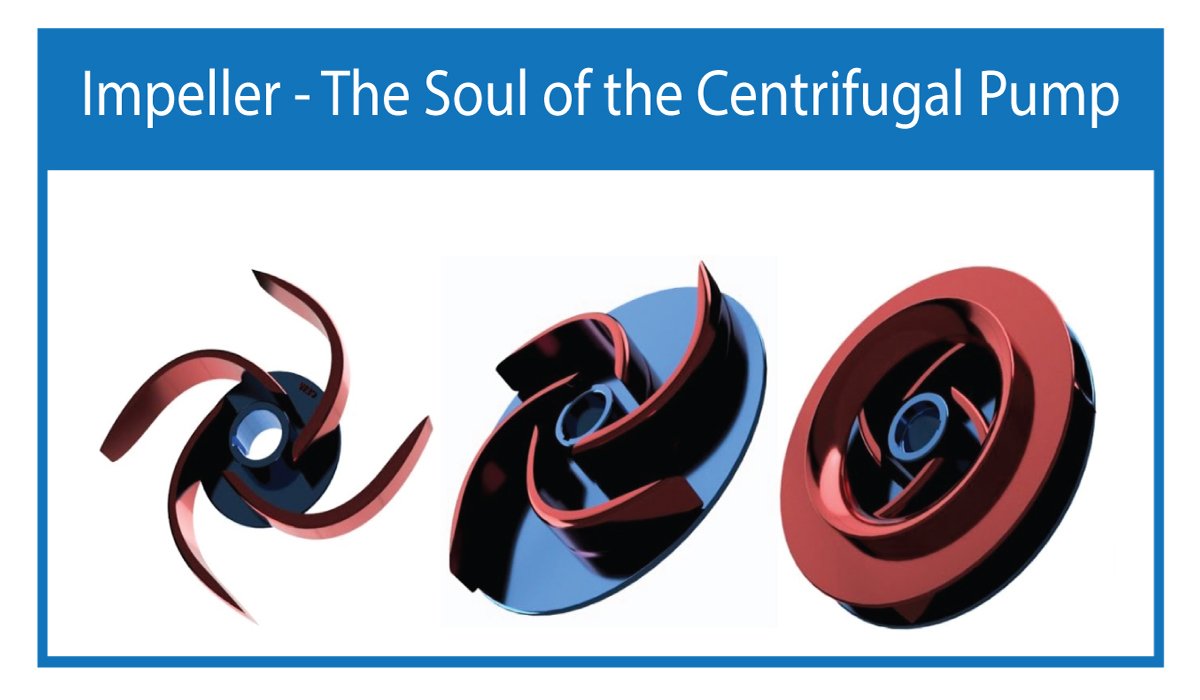The impeller is an essential component of a centrifugal pump, also known as the heart of the pump. It plays a critical role in the functioning of the pump by creating the pressure and flow of the fluid. An impeller is a rotating component that is mounted on a shaft, which is powered by a motor. The impeller rotates at high speed and generates a centrifugal force that moves the fluid through the pump.
The impeller is designed with blades that move the fluid towards the outside of the impeller. The fluid is then forced into a volute casing, which creates the pressure needed to move the fluid through the system. The shape of the impeller blades and the volute casing are carefully designed to optimize the flow of the fluid, ensuring maximum efficiency and performance.
Types of Impellers
There are two main types of impellers, open and closed impeller. Open impellers are commonly used in high-volume applications where the fluid being pumped is relatively clean. These impellers are easy to manufacture and maintain, but they are more susceptible to clogging and cavitation. Closed impellers, on the other hand, are used in high-pressure applications where the fluid being pumped is dirty or abrasive. These impellers are more complex in design, but they are more reliable and can handle tough pumping conditions.
The material used to manufacture of impeller can greatly affect the performance of the pump. The most common materials used for impellers are cast iron, stainless steel, and plastic. Cast iron is durable and economical, but it is susceptible to corrosion. Stainless steel is resistant to corrosion and can handle high temperatures, making it ideal for harsh pumping conditions. Plastic is lightweight and corrosion-resistant, making it ideal for low-cost applications.
The size and shape of the impeller also play an important role in the performance of the pump. The size of the impeller directly affects the flow rate of the fluid, while the shape of the blades affects the pressure generated. The impeller design must be carefully optimized to ensure the right balance between flow rate and pressure, depending on the specific pumping requirements.
One of the critical factors in impeller design is the angle of the blades. The angle of the blades affects the flow of the fluid and the pressure generated. The blades can be angled to optimize the flow of the fluid, ensuring maximum efficiency and performance.
Another important factor in impeller design is the number of blades. The number of blades affects the flow of the fluid and the pressure generated. The number of blades must be carefully selected to ensure the right balance between flow rate and pressure.
In conclusion,
the impeller is the soul of the centrifugal pump, and its design and material selection are critical to the performance of the pump. The impeller plays a crucial role in the flow of the fluid and the pressure generated, and it must be designed to optimize the pumping requirements. The impeller must also be manufactured from the right material to ensure durability and reliability. Whether you are a pump manufacturer, pump operator, or pump maintenance engineer, understanding the importance of the impeller is essential to ensuring the best performance from your centrifugal pump.
From Ahmedabad, Gujarat, India, we are a manufacturer and supplier of submersible parts, submersible pump Impellers, submersible motor parts, pump accessories, solar pump spares, water pump spares, and motor pump spares. Since its founding in 1989, Microcare has made a name for itself as one of India’s top submersible pump Impellers providers.


